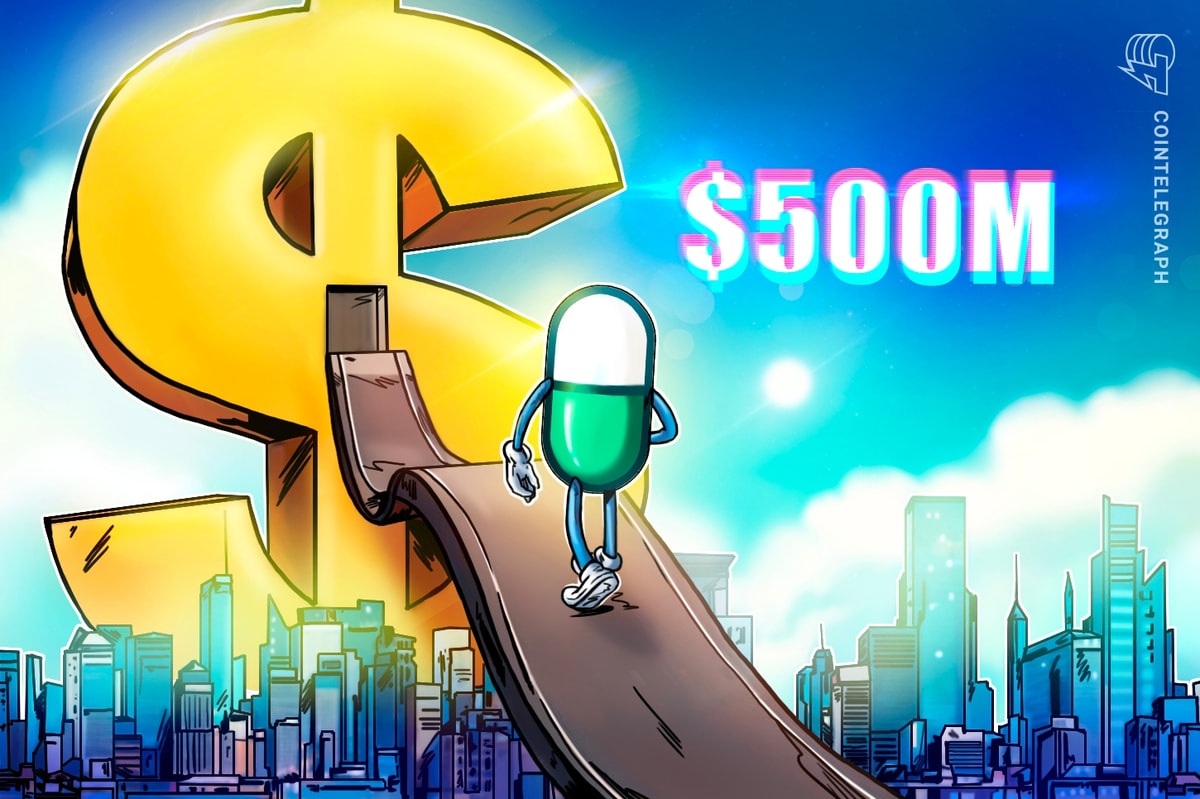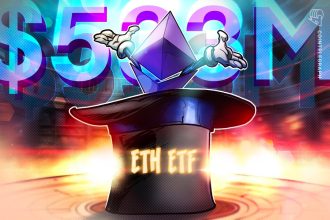Pump.fun Raises $500M on Token Launch, Fuels Retail FOMO Craze on Solana
Key Takeaways
-
Pump.fun executed its public token sale with a limited supply and locked transfers for 72 hours, creating urgency and fueling retail FOMO.
-
Over 10,000 wallets participated, many pre-funded via PumpSwap, enabling rapid buying and swift capital inflow.
-
Platform processed $448M directly on Solana, leveraging the network’s high-speed, low-fee design to complete the $500M sale in under 12 minutes.
-
Post-sale, Pump.fun announced strategic acquisitions, token buybacks, and ecosystem expansion to reinforce momentum and justify its $4B valuation.
Launch date: July 12, 2025. Platform: Solana-based Pump.fun. Token: PUMP. Total Sale: $500 million.
Understanding Pump.fun’s $500-million Token Sale
With an initial supply of 12.5% (125 billion tokens) of its 1 trillion total PUMP tokens, the sale of $500 million saw participants drawn in by the platform’s reputation.
The sale concluded in under 12 minutes, driven by a network effect amplified by Pump.fun’s dominance in the Solana meme coin launchpad space (reporting approximately 71% market share by late 2024).
The vast majority of funding ($448 million) flowed directly on-chain via Solana transactions. Token transfers are subject to a 72-hour lockup period, intensifying early speculation and FOMO.
Pump.fun raised an additional $700 million in a private sale earlier, bringing the total capital raised to $1.2 billion. While $4 billion is provisional, the sale places it among the highest-valued memecoin launches of 2025.
The team acted swiftly post-sale, acquiring complementary tools like Kolscan for wallet analytics and deploying capital towards buybacks funded by trading fees exceeding $60 million in the first 48 hours.
The Solana-based Pump.fun Token and its Retail Rush
Public access to the PUMP token sale triggered immediate market activity, marked by classic FOMO (Fear Of Missing Out) psychology.
Techniques observed included whales seeding multiple wallets (with one suspected effort distributing $400 across 500 wallets) to circumvent anti-Sybil measures. Large holders fragmented holdings across sub-wallets to influence price without detection.
Trading activity surged, with PUMP briefly trading 40%-75% above its $0.004 ICO price on exchanges like Hyperliquid before stabilizing.
The sale barred participants from the United States and the United Kingdom amid ongoing regulatory scrutiny targeting the platform and its Solana-based token offering.
The platform’s rapid expansion and launchpad model has cultivated a retail-focused ecosystem, accounting for approximately 71% of all Solana coin launches within months of its inception in early 2024.
What Pump.fun’s Rapid Fundraising Highlights about Retail FOMO Crypto
Pump.fun operates as a high-speed meme engine, leveraging social virality and technical efficiency to fuel speculation.
1. FOMO Psychology
PUMP’s meteoric rise exemplifies memecoin dynamics: viral energy, minimal entry barriers, and the pursuit of extreme returns. Its platform amplifies this through integrated livestreams and incentives, creating feedback loops faster and flashier than earlier iterations like Dogecoin.
2. FOMO Fuel
Operating on Solana provides a significant advantage: negligible transaction fees and sub-second confirmation times. The near-$500 million sale completed in minutes rather than hours, showcasing the evolution of DeFi token launches into high-frequency, API-driven events.
3. FOMO Risk
However, significant risk accompanies the hype. Analysis suggests that approximately 98.6% of tokens launched on Pump.fun subsequently experience significant price collapses or are victims of rug pulls.
Risks and Criticisms: $4-billion Memecoin Valuation, 2025
The $500-million sale was celebrated but simultaneously drew sharp criticism from critics and regulators.
Revenue vs. Retail Risk
While platforms like Dragonfly highlight substantial revenue generation (estimated over $60 million in mere 48 hours), critics argue that platforms like Pump.fun trade investor protections for virality. The model monetizes Gen-Z FOMO, bypassing traditional securities regulations.
Legal Red Flags
Following the sale, a class-action lawsuit in the Southern District of New York accused Pump.fun of selling unregistered securities, facilitating pump-and-dump schemes, and netting $444 million in fees (closely mirroring the sale proceeds).
Separately, the UK Financial Conduct Authority (FCA) issued warnings against the platform, labeling it unauthorized and subsequently restricting UK users.
Tech Failures at Scale
API outages on exchanges including Bybit, Gate.io, KuCoin, and Kraken during the peak hours disrupted the buy-in process for some users, casting doubt on the infrastructure supporting such high-stakes token launches.
DeFi Token Launch Trends for Crypto and Retail Trading
Pump.fun may signify a new phase of crypto market cyclicity – a return to ICO-style hypes, modernized by meme appeal and rapid launch capabilities.
As traditional platforms see declining launchpad activity and regulations tighten, platforms like Pump.fun fill the void, promising speed and engaging younger retail participants. Integrations like creator fee-sharing represent tentative steps toward novel ecosystem mechanics.
The volatility, lack of traditional fundamentals, and inherent risks underscore a central question: Does this represent a temporary peak of speculative activity, or a longer-term structural shift in DeFi token distribution? The high failure rate of Pump.fun’s token launches suggests the latter outcome remains statistically improbable.











